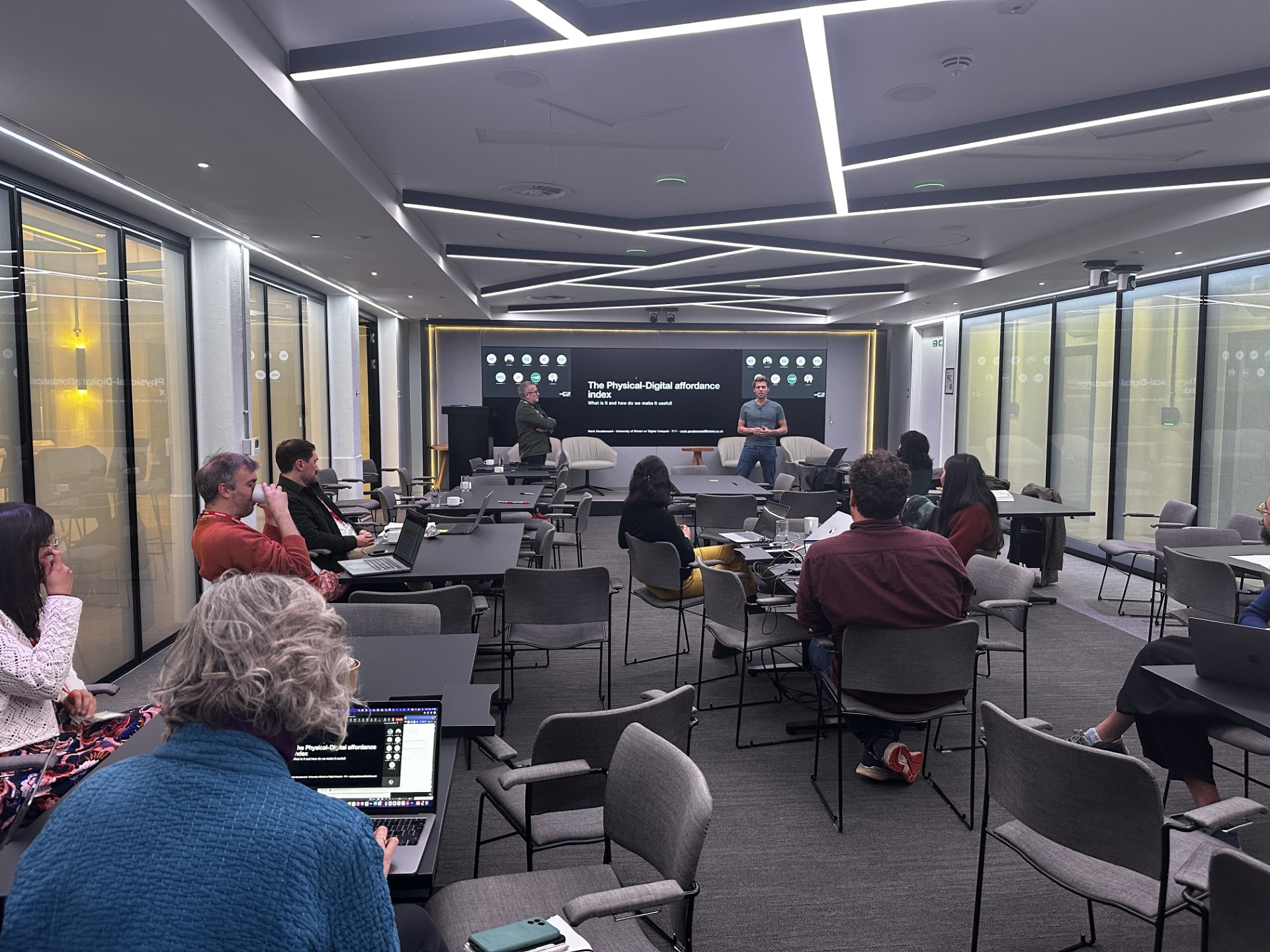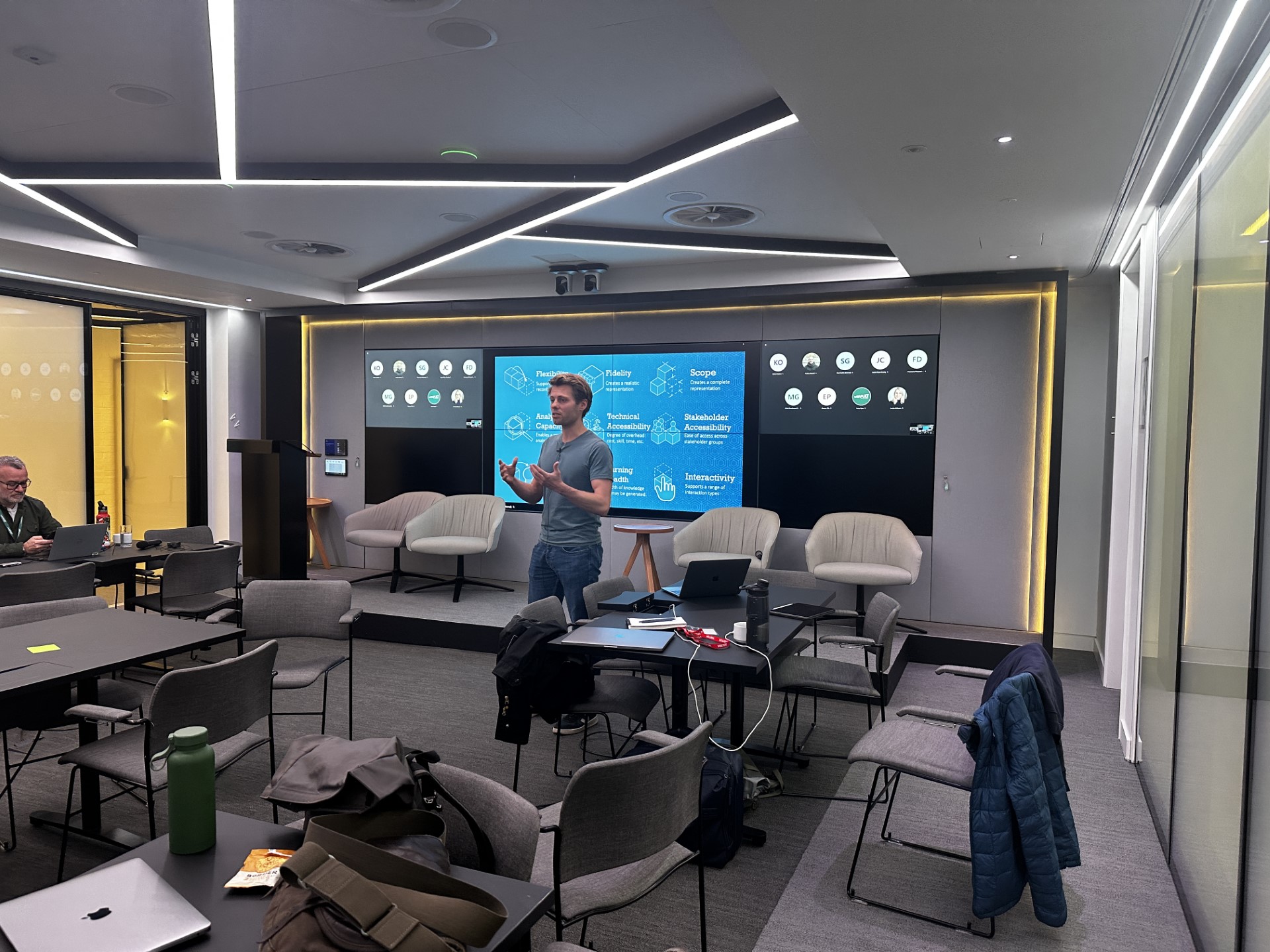In Spring 2023 I found out that I was successful in my application to the Researcher in Residence programme to develop the Physical-Digital Affordance Index (PDAI) in collaboration with the Digital Catapult (DC).
As technology develops, we are increasing moving many aspects of our lives, both design specifically and more generally, into the digital realm without much consideration as to whether digital is really the most appropriate based upon what we want to achieve. The PDAI will enable evidenced based decision making as to whether a design activity is best undertaken digitally physically, and will assist in making sure design practice can enable robust, resilient decision making.
The project kicked off in August, and since then I have been working with the design team at DC to explore how existing design knowledge that we have been developing both theoretically and empirically can be applied to real-world industrial design problems.



On Tuesday (7th November ’23) I presented the initial proposition and motivation for the PDAI to a cross catapult event hosted at the connected places catapult in London. It was great to get feedback and input from a range of designers on our PDAI proposition, in particular regarding how concepts of prototyping affordances, design fungibility, knowledge dimensions and designer neuro-cognition can be used to inform design practice.
A paper presenting the PDAI is currently in preparation for submission by the end of the month and presentation at the CIRP design conference in 2024.
